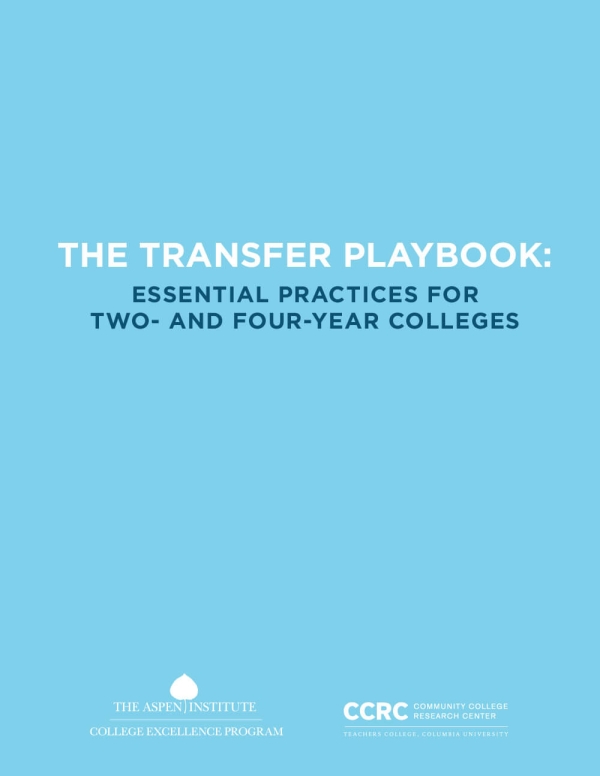A second edition of The Transfer Playbook was released in March 2025.

Most students entering community college aim to earn a bachelor’s degree. But, as shown in a study released by CCRC, The Aspen Institute, and the National Student Clearinghouse Research Center earlier in 2016 (see: Tracking Transfer: New Measures of Institutional and State Effectiveness in Helping College Students Attain Bachelor’s Degrees), a relatively small portion of these students transfer and earn a bachelor’s degree within six years.
This playbook is a practical guide to designing and implementing a key set of practices that will help community colleges and their four-year college partners improve transfer outcomes. The playbook is based on the practices of six sets of community colleges and universities that together serve transfer students well. These institutions have higher than expected rates of bachelor’s degree attainment for degree-seeking students who start at community college and transfer to a four-year institution—after accounting for their student demographics and institutional characteristics.
The playbook is organized around three broad strategies observed in these partnerships:
- Make transfer student success a priority.
- Create clear programmatic pathways with aligned high-quality instruction.
- Provide tailored transfer student advising.
Included in the playbook are essential practices underlying each of these three strategies, a discussion of the next frontiers of practice, and a list of activities for community colleges and four-year colleges to undertake in order to implement the strategies.
